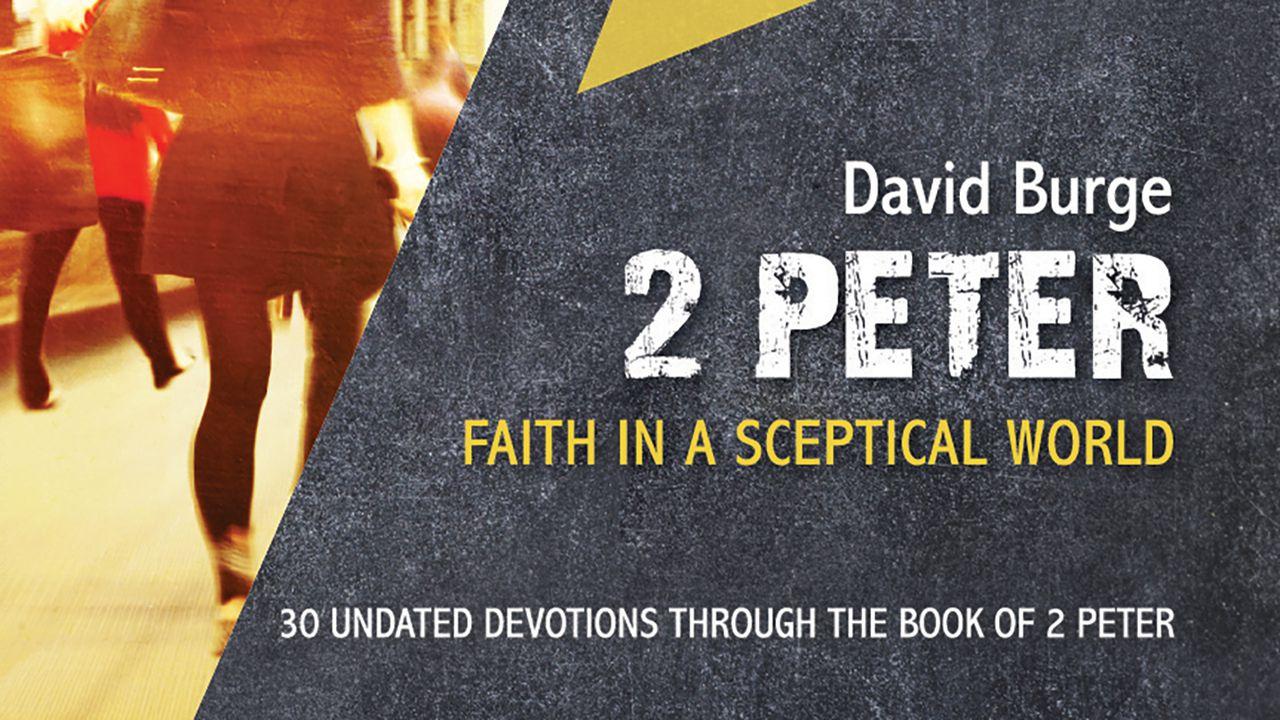2 Peter: Faith In A Skeptical World Exemplo

If you have ever seen the sickening damage wolves can do to a flock of sheep, you would understand the serious attempts to defend the sheep from further attacks. The wolves don’t just kill to eat, but they kill and maim to simply kill and maim. Some sheep are killed instantly; others die over a number of days from their wounds. Peter senses wolves are not far from his flock.
Jesus warned His disciples about the threat of false teachers, and He commanded Peter three times to care for His sheep (John 21:15–17). The rest of Peter’s life was given to being a faithful shepherd of God’s flock (1 Pet. 5). To protect the sheep, Peter describes what the wolves look like so that there will be no mistaking them.
He assures them, just as Israel has always had false prophets, so too Christians can expect there ‘will be false teachers among you’ (2:1). What will they look like? How will they behave? How can they be identified? Peter spells it out, describing their impure motives, their deceptive and harmful methods, and their immoral and shameful behaviour (vv. 1–3). What is not yet visible, but is certain for them, is the destruction awaiting them (vv. 1, 3).
When Jesus says, ‘Do not judge’ (Matt. 7:1), many Christians mistakenly interpret that to mean we should not notice or critique the good and evil of those around us, as though we are not to call wrong ‘wrong’. But mature Christians are good at seeing sin for what it is (see, for example, Acts 5:3; Gal. 2:11–14). When Jesus forbids judging He is forbidding a self-righteous attitude in which we see ourselves as superior to those who do wrong. Jesus taught, and Peter shows throughout chapter 2, that we are not to ‘charitably’ endorse, accept, or be indifferent to sin among believers. Peter helpfully labels false teachers for what they are and what they do. He does not separate the sin from the sinner as though they exist separately.
Sadly, ‘many will follow their shameful ways’ (v. 2), but Peter is seeking to reduce the number of victims by speaking plainly about the threat. There remains an important place for such plainness of speech among church leaders in every generation. If we do not call sin ‘sin’, we are in danger of accepting and thus endorsing it.
Reflection
Are there false teachers and teachings around you? Which distortions of the Christian life may appeal to you and how might you intentionally resist their influence?
Escritura
Sobre este plano

Your faith is precious! So often, though, we can feel weak, irrelevant and marginalized. Living in a skeptical world where truth is twisted and false teaching abounds isn’t easy. Peter knew about the challenges of living in such a world, but he also knew Jesus deeply, and he was utterly convinced of the importance of trusting Jesus and living for Him. Bible teacher David Burge delves into this letter and highlights relevant applications for our lives today. Be reminded of the truth about Jesus, motivated to continue to trust him and equipped for living in a skeptical world with these thirty undated devotions.
More
Planos Relacionados

The Art of Edification: A 3-Day Marriage Plan

Today Is a Verb: Open the Gift of Now

Mindful Devotions for Busy Days

Financial Fitness: A 3-Day Parenting Plan

Seeing Jesus Through the Eyes of the Christmas Story Characters

In His Image: Discover Your True Identity

TheLionWithin.Us: 5 Simple Strategies to Fight for Your Family

Whispers From the Past Mom Devotional: Fun, Witty Lessons for Modern Moms From Moms in the Bible

GIFTS of MISSIONAL LIVING: A 5-Day Journey Exploring the Gifts of the Holy Spirit for Missional Life
